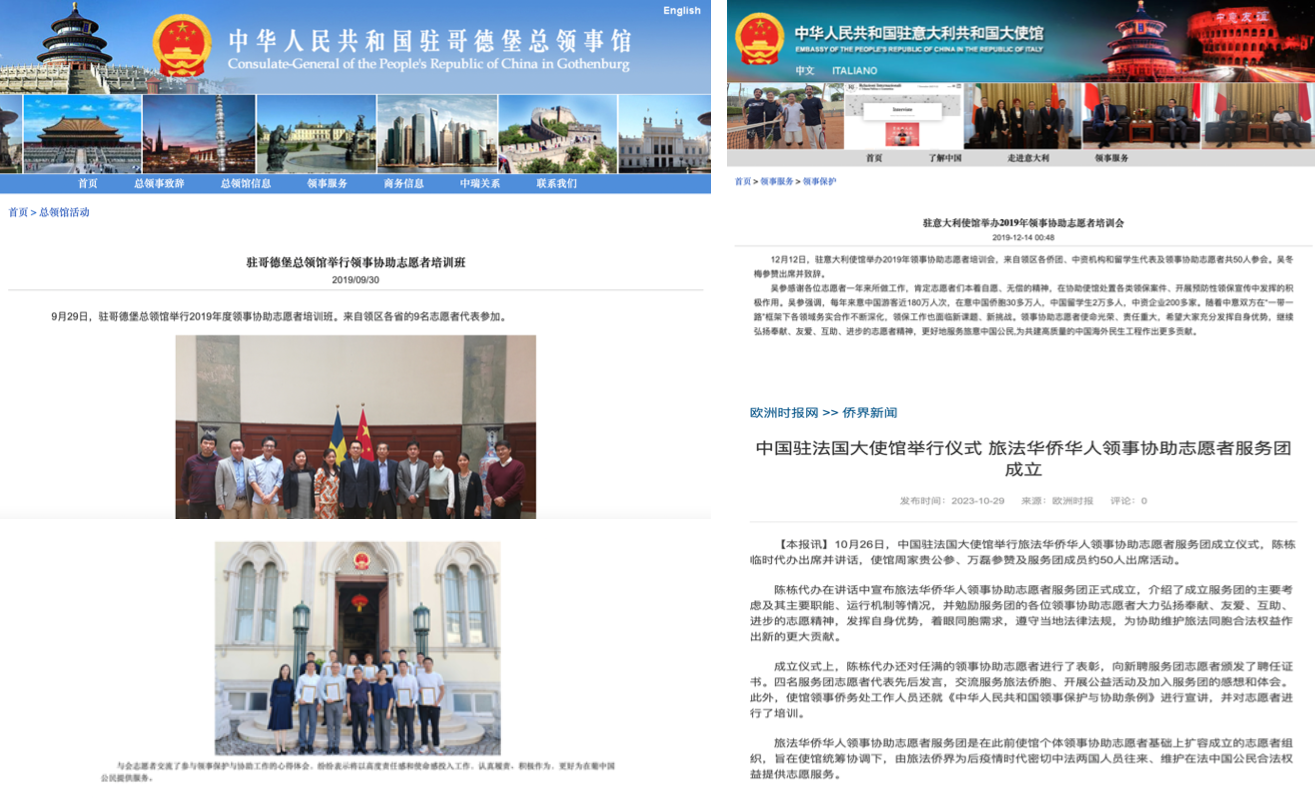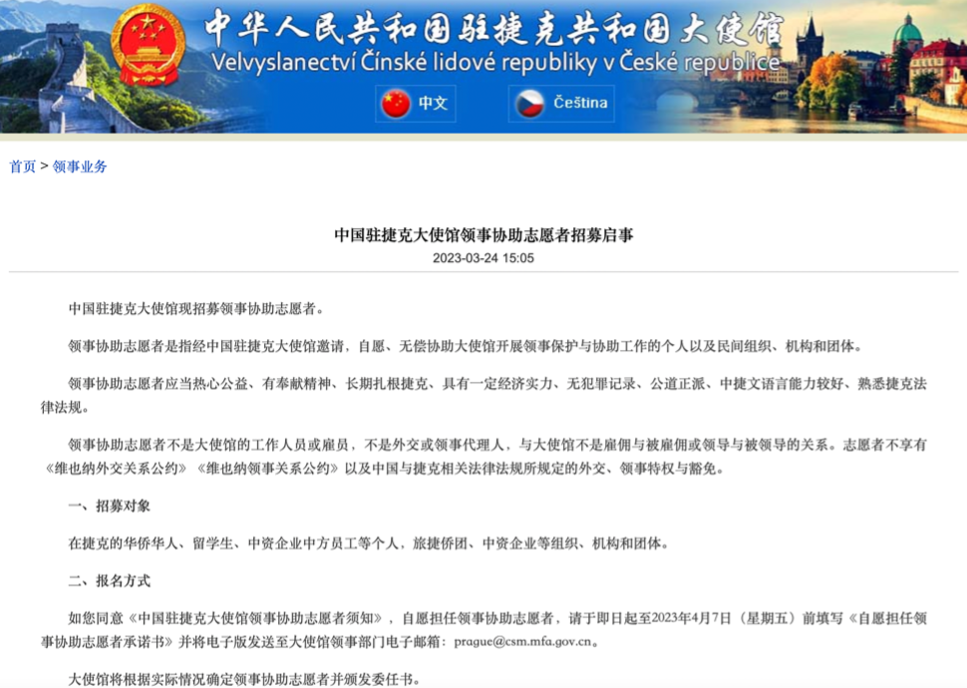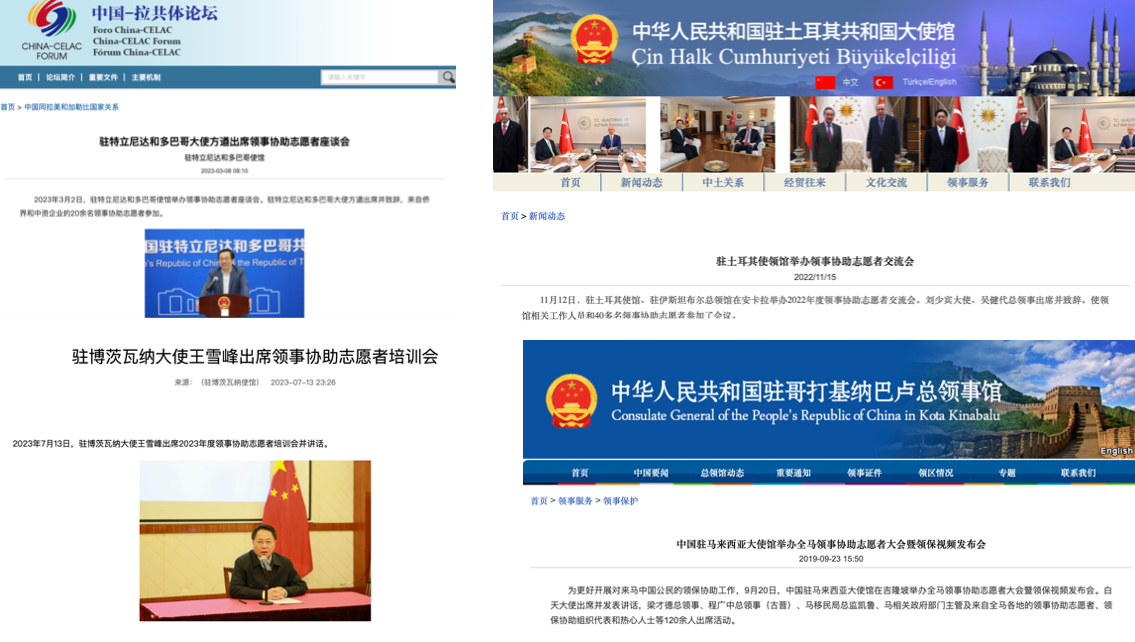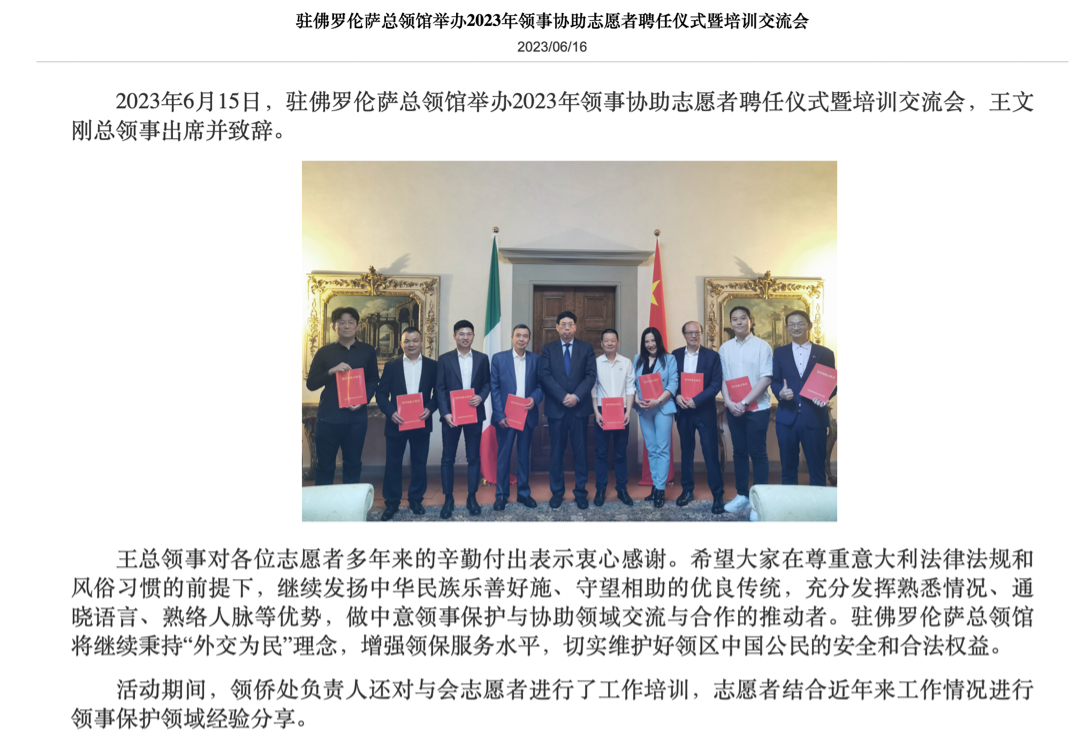On June 29th 2023, the Regulations of the People's Republic of China on Consular Protection and Assistance [中华人民共和国领事保护与协助条例] were adopted by the State Council. They entered into force on September 1st.

The Decree was issued roughly one month after the adopted G7 Hiroshima Leaders’ Communiqué of May 20, 2023, which included a dedicated China-section. Among the positions outlined, one stood out to us: “We call on China to act in accordance with its obligations under the Vienna Convention on Diplomatic Relations and the Vienna Convention on Consular relations, and not to conduct interference activities aimed at undermining the security and safety of our communities, the integrity of our democratic institutions and our economic prosperity.”
The generic rebuke reads as a partial response to reports on the establishment of so-called “overseas police service centers” by Chinese public security authorities in close cooperation with the United Front Work Department and its sprawling transnational repression activities aimed at suppressing the fundamental freedoms of diaspora communities (and not only them) around the world.
Attentive readers of our December 2022 report Patrol and Persuade may remember the express reference made to the Vienna Convention on Consular Relations. Its opening articles (1 to 5) clearly stipulate the rules under which consular functions are to be exercised in any host country. We note in particular the provision in article 3 that “Consular functions are exercised by consular posts” (as defined in article 1) and in article 4 that “A consular post may be established in the territory of the receiving State only with that State’s consent. […] The consent of the receiving State shall also be required if a consulate-general or a consulate desires to open a vice-consulate or a consular agency in a locality other than that in which it is itself established. The prior express consent of the receiving State shall also be required for the opening of an office forming part of an existing consular post elsewhere than at the seat thereof.”
The Convention leaves little room for interpretation. Yet in typical PRC fashion the State Council resolved to “legalize” a practice they had been conducting abroad since at least 2013 - redolent of the infamous ‘rule by law’ system where grey zone or previously illegal practices are codified in China’s domestic legislation. In fact, a Ministry of Justice note on the Regulations states: “[…] some effective practices accumulated in the practice of Chinese consular protection and assistance need to be solidified at the level of the rule of law to promote the long-term development of this work” whereas “a system of consular protection and assistance with Chinese characteristics is gradually forming.”
In what otherwise seems like a rather bland decree on consular protection and assistance that repeats the need to abide by international law and the consent of the host country, concluding articles 24 and 25 add a special category: consular volunteers.

Article 24 The State encourages relevant organizations and individuals to provide voluntary services for consular protection and assistance. The state encourages and supports insurance companies, emergency rescue agencies, law firms and other social forces to participate in consular protection and assistance.
Article 25 Organizations and individuals that have made outstanding contributions to consular protection and assistance shall be commended and rewarded in accordance with the relevant provisions of the State.
These provisions – which were notably absent from the March 26, 2018, draft Regulation circulated by the Foreign Ministry for public comment - are cited as highlights in the aforementioned Ministry of Justice note on the Significance and highlights of the Regulations of the People's Republic of China on Consular Protection and Assistance, and further underlined during a joint press conference by the Ministry of Justice and Ministry of Foreign Affairs.
Innocent-looking enough, is it not? One might even argue this is further proof of what the PRC authorities have been saying all year in response to the reports on overseas police contact points, e.g. that they were solely providing assistance to overseas communities in need. We would argue otherwise, but let’s go back to the beginning.







